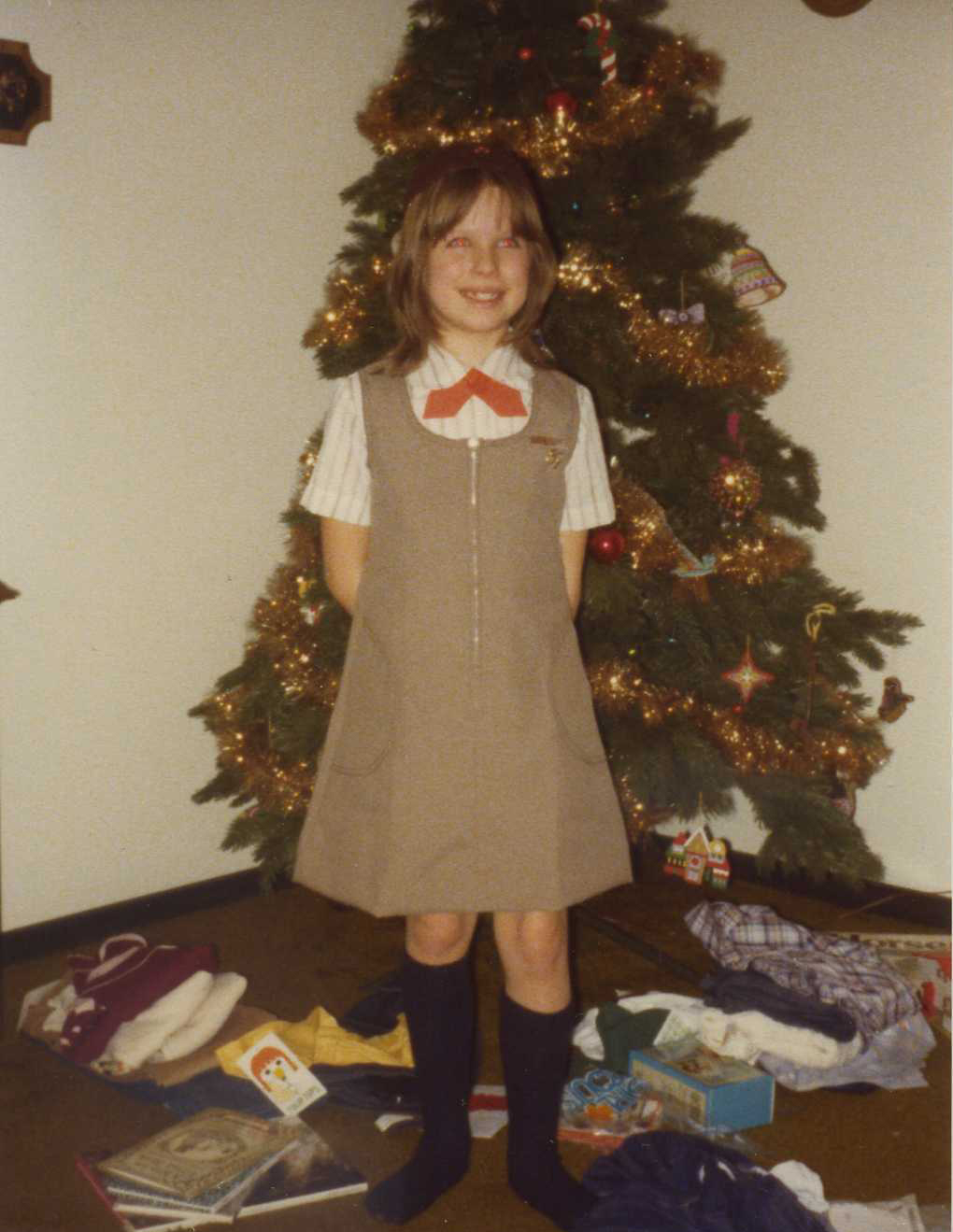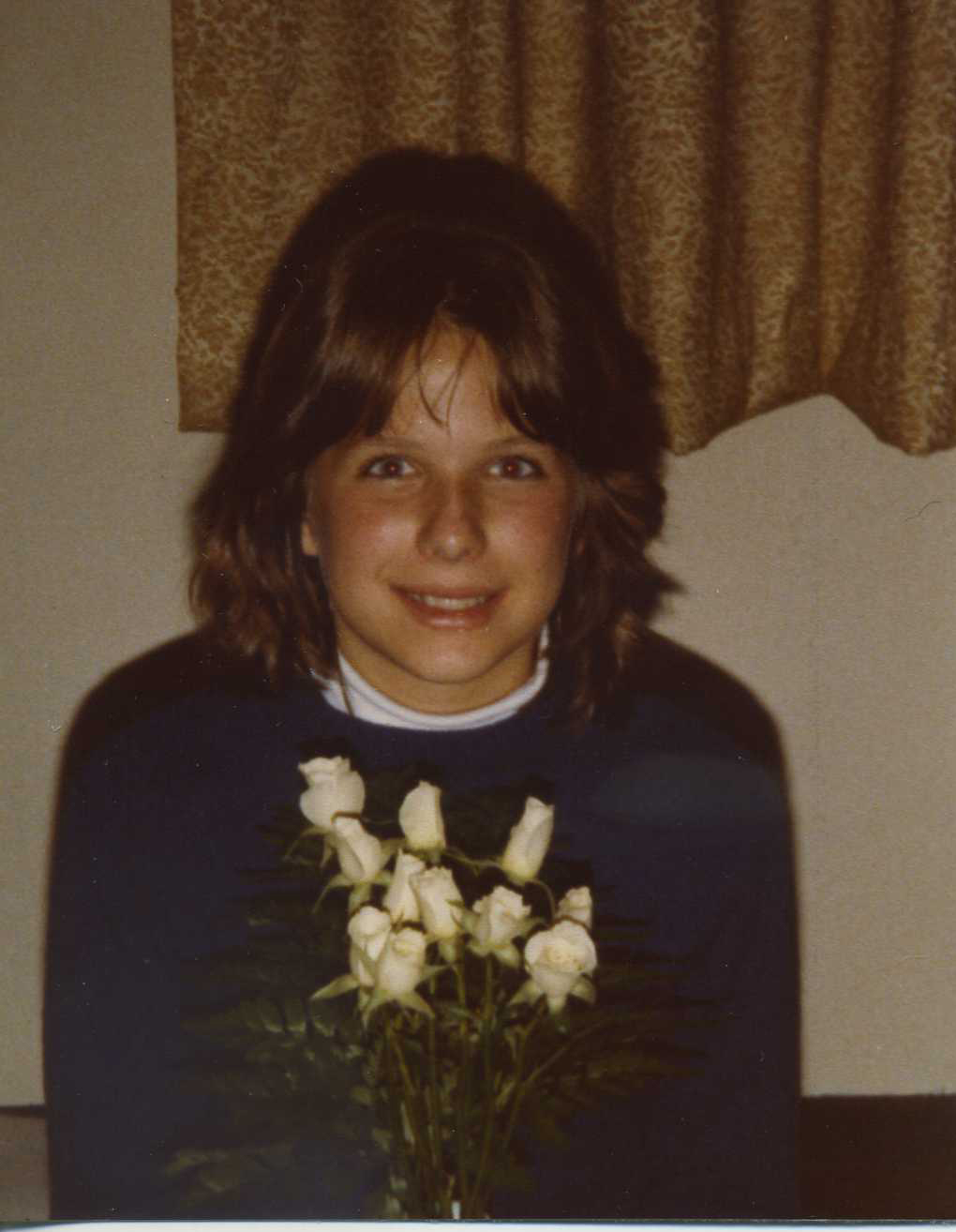
I don’t remember being told I was pretty when I was little.
It’s possible I just don’t recall, or maybe it really didn’t happen — I went through a gawky period that ended, oh, maybe in my 20s.
Most likely, it just wasn’t something my mom would have made a big deal about.
Mom was a tough-talking tomboy, a woman for whom getting fancied up might mean putting on lip balm, mascara and a bra. “Pretty” wasn’t high on her list of aspirations. She bought me boys’ jeans in elementary school because she felt they were more durable, even as I begged for Jordache. We argued repeatedly because I wanted to wear my Girl Scout uniform — a dress — to school, and she didn’t think that was a practical choice.
So when a retread of Lisa Bloom‘s Huffington Post piece, How to Talk to Little Girls, circulated on Facebook recently, I felt maybe I help illustrate her point.
Bloom starts out:
I went to a dinner party at a friend’s home last weekend, and met her five-year-old daughter for the first time.
Little Maya was all curly brown hair, doe-like dark eyes, and adorable in her shiny pink nightgown. I wanted to squeal, “Maya, you’re so cute! Look at you! Turn around and model that pretty ruffled gown, you gorgeous thing!”
But I didn’t. I squelched myself. As I always bite my tongue when I meet little girls, restraining myself from my first impulse, which is to tell them how darn cute/ pretty/ beautiful/ well-dressed/ well-manicured/ well-coiffed they are.
Why does Bloom hold back from sharing her real reaction to a darling little girl?
Teaching girls that their appearance is the first thing you notice tells them that looks are more important than anything. It sets them up for dieting at age 5 and foundation at age 11 and boob jobs at 17 and Botox at 23. As our cultural imperative for girls to be hot 24/7 has become the new normal, American women have become increasingly unhappy. What’s missing? A life of meaning, a life of ideas and reading books and being valued for our thoughts and accomplishments.

I recall getting loads of praise for my grades. My mom would carry my report card in her purse and produce it to friends and family while I basked in the oohs and ahhs about how smart I must be.
One my mom’s friends bought me a dictionary one year for Christmas and I remember spending hours sitting on the floor reading it like a Nancy Drew novel. My mom got me a bookcase for my bedroom, and on it I put my dictionary, along with the Little House on the Prairie series, the Chronicles of Narnia, and the Dr. Seuss books I’d gotten in a book of the month club, arriving one at a time in the mail, addressed to me.
Yes, I wanted to be pretty and popular, I wanted boys to like me, I wanted every bit of that superficial stuff.
But my dad was quizzing me about current events, asking me questions that forced me to watch the national news and read the newspaper, not squealing about how precious I was as we played tea party.
Maybe that’s why I ended up graduating in the National Honor Society and getting my MBA from a top 10 school — because the people around me praised me for being smart, not for being pretty. My parents, neither of whom had gone away to college, made it feel like the most obvious thing in the world that I’d go to college and pick any career I wanted.
Bloom suggests this:
Try this the next time you meet a little girl. She may be surprised and unsure at first, because few ask her about her mind, but be patient and stick with it. Ask her what she’s reading. What does she like and dislike, and why? There are no wrong answers. You’re just generating an intelligent conversation that respects her brain. For older girls, ask her about current events issues: pollution, wars, school budgets slashed. What bothers her out there in the world? How would she fix it if she had a magic wand? You may get some intriguing answers. Tell her about your ideas and accomplishments and your favorite books. Model for her what a thinking woman says and does.
And let me know the response you get at www.Twitter.com/lisabloom and Facebook.

